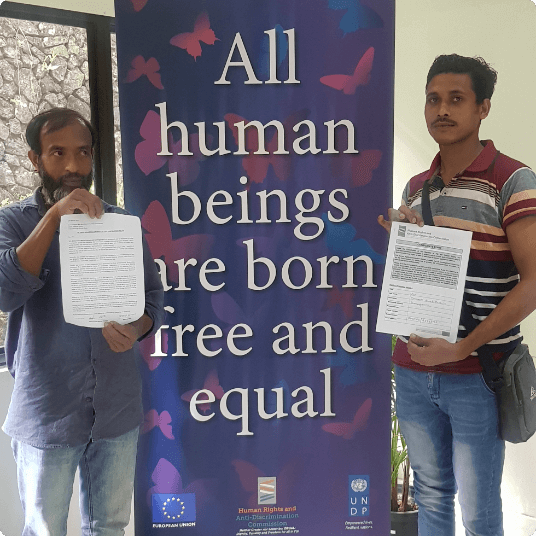- Accessibility:
- Text Size
Business & Human Rights
- Home
- Business & Human Rights

Business and Human Rights
There is a pressing need to harmonize economies, ecologies and the respect for human rights and inherent human dignity. Environmental catastrophe, displacement of communities and the decimation of their cultural ways of living and being, cruel, degrading and inhumane working conditions and the exploitation of the most vulnerable including women and children, the suspension of the enjoyment of fundamental human rights including the right to development and social and economic rights underscores the centrality of the often times vexed relations between business and human rights. While states have the primary obligation of protecting, preserving and promoting human rights, the state is but a partial and an insipient element in this kaleidoscope. Businesses too must take the responsibility of preventing human rights violations and providing remedy to victims of human rights violations. There is a growing recognition that infraction of human rights is bad for business precisely because of the reputational risks and damage.
- The State duty to protect human rights against abuse by third parties, including business, through appropriate policies, legislation, regulations and adjudication;
- The corporate responsibility to respect human rights, meaning to act with due diligence to avoid infringing on the rights of others and address adverse impacts with which they are involved;
- The need for greater access to effective remedy, both judicial and non-judicial, for victims of business-related human rights abuse.
Plight of Pacific Seasonal Workers – Key Issues
- Mistreatment (including verbal abuse by supervisors), exploitation and underpayment
- Denial of access to medical care
- Underfed
- Unable to move freely in the community including visiting family members
- Refusal of work breaks
- Denial of right to practice religion
- Constrained from practicing their culture
- Harsh and repressive working conditions
- Expensive accommodation
- Little knowledge of workers visa status
Strategies to strengthen relationship between businesses human rights institutions and state to promote human rights: What can each stakeholder do:
(a) the state:
enforcement of laws that require business enterprises to respect human rights, to periodically assess the adequacy of such laws, and address any gaps
ensure consistency of corporate laws with human rights obligations
effective guidance to business enterprises on how to respect human rights throughout their operations,
encourage and require where appropriate business enterprises to communicate how they address the human rights impact of their operations.
Business enterprises need to develop an understanding of the core human rights values encapsulated in the UDHR and ILO Convention and examine how their own activities may adversely impact human rights whether it be their employees or the wider community and how to ensure that they prevent or mitigate the risk of adverse impacts.
Consider whether additional human rights standards are required in order to ensure the respect for human rights who are deemed vulnerable
Distinction between respect for human rights from philanthropy and corporate social responsibility






